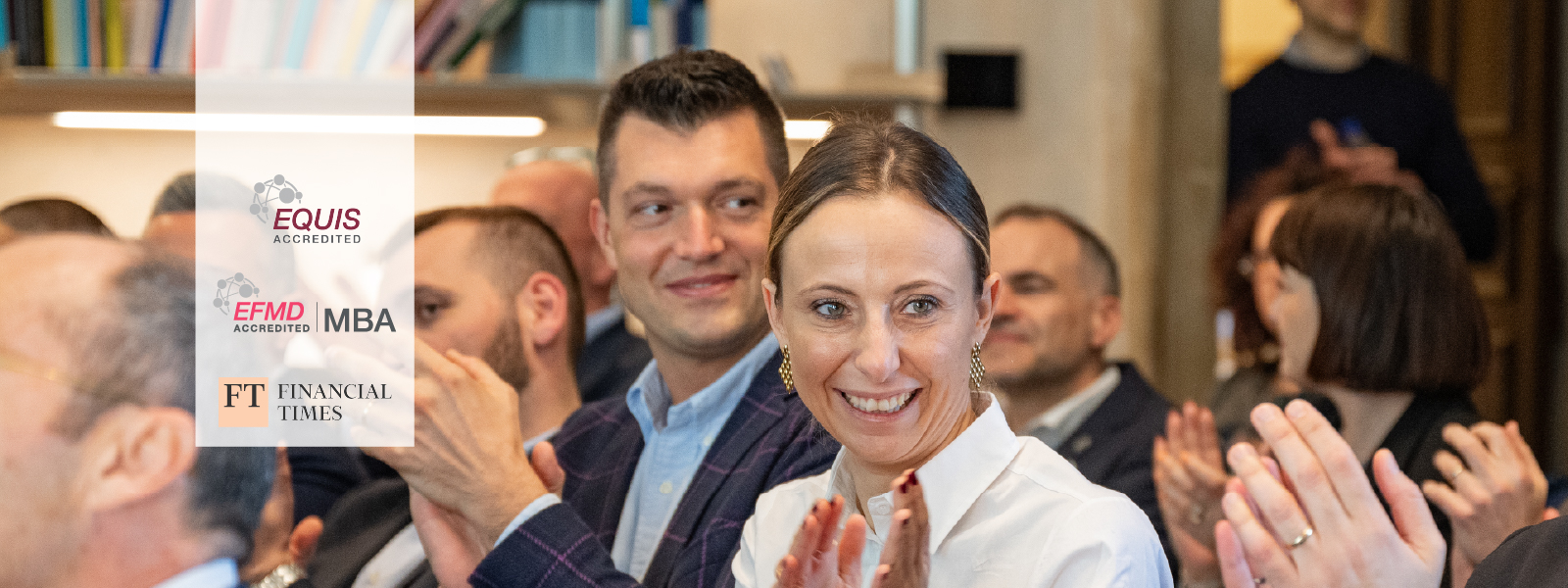
A SUCCESSFUL CHOICE
The Executive MBA (EMBA) is meant for managers and entrepreneurs seeking an experience that can transform their professional life: they aim at developing their visioning and execution skills which are necessary to chart the course of a valuable enterprise.
Those accepting the EMBA challenge will learn to deploy a solid leadership that eventually can affect the entire company, through a path of professional and personal enrichment. Accordingly, the company business will benefit from the experience of a thorough manager who is able to lead the whole organization thanks to his/her top skills and strong motivation.
Those who decide to attend an Executive MBA are individuals who would like “to make things happen”: they are someone willing to face ever-changing scenarios, to support international growth trajectories and to manage problems with a collaborative mindset. In this regard, the EMBA constitutes an important milestone in every participant’s professional life because it will enable him/her not only to work at his/her best within an organization, but to actually do business.
This EMBA is an intense Master’s programme, but at the same time it fits with participants’ work commitments: class lectures (where academic rigour meets the experience of senior managers and consultants) alternate with online in-depth analyses material. Participants’ knowledge about management issues consolidates during the core courses. The inspirational & motivational sessions help to sharpen and to improve specialist and relational skills. The bent for innovation and change is spurred with the development of a business plan.
By attending this Executive Master, one can access the School’s Business Network and the Alumni Community. Through the Emba Consortium, created in partnership with international Business Schools, participants will attend a Business Innovation programme in a country to be chosen among Brazil, Great Britain, USA, South Africa, Perù, Japan, Poland or Germany.
If you’re experiencing these challenges today, why not making an appointment with the Head of the Master’s programme: together you might assess how the Executive MBA will impact your professional journey.
THE MASTER IS AN INVESTMENT.
THE HONOR IS THE WAY TO FUND IT.
Ranking
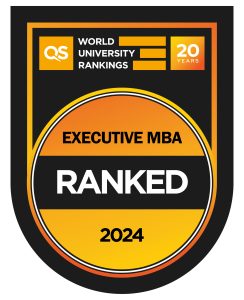
QS Quacquarelli Symonds is the international network focused on services, analysis, and in-depth reports of post-experience and university education, geared toward international mobility and career development. The QS Executive MBA Ranking is based on insights from the business world and a methodology that allows programs to be evaluated according to four parameters: Faculty and Teaching, Class Profile, Employability, and Class Experience.
Accreditation

Bologna Business School is EQUIS – EFMD Quality Improvement System accredited, one of the most important international quality assessment and continuous improvement systems for Schools of Management and Business Administration.
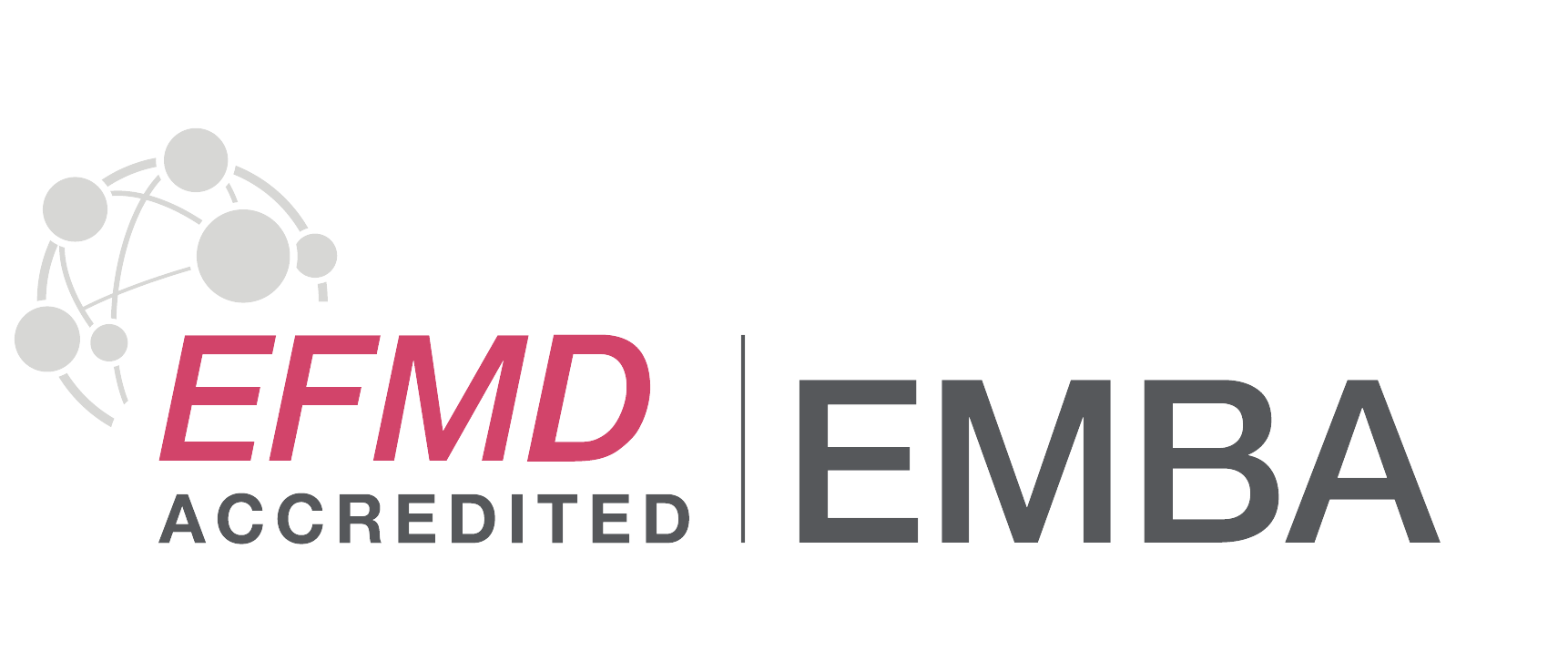
This program has achieved EFMD accreditation, the leading international system for quality assessment, improvement and accreditation of business programs.

Andrea Lipparini
Academic Director
andrea.lipparini@unibo.it
" Emba is an important experience for the participants, destined to ‘remain’ in the portfolio of significant projects. It is a resource which refines skills, a visible footprint in their professional and personal path. It is a path which is taken individually, with tenacity and determination, all the while letting them count on the School and its lecturers for support. An example? The direct telephone line, new for this edition, between the participants and the Academic Director. "

Alessio Cavallini
Executive Director
cavallini.alessio@bcg.com
" Navigating the current breadth of business economic systems, the impact of new technologies and hybrid ways of working requires appropriate responses. The Executive MBA offers tools to make one extraordinarily effective within one's work environment. The EMBA strengthens and enhances the quality of one's Network: an asset that does not stop at the classroom experience but grows and accompanies career development "
Structure
The EMBA consists of 52 classroom days articulated in 26 2-day long classes (Friday and Saturday). The didactic program is diversified in structure: 10 core courses focus on the main managerial principles, which also require distance learning online. Along with this, there is a broad series of cross-cutting activities that aim at improving skills and personal competencies.
CORE COURSES
The fundamental skills are taught by way of 10 courses which consolidate basic knowledge of managerial disciplines. All EMBA courses are either scheduled into weekly modules or else intensive sessions given periodically during the course of the Master. Each course is characterized by classroom lectures, individual or group study, learning activities on the School’s e-learning platform, and a final exam.
INSPIRATIONAL & MOTIVATIONAL SESSIONS
Intensive discussion groups of one or more sessions on current themes in business, from highly specialized skills to networking abilities. Activities that offer stimulation for growth and complete the development path of participants: meetings with protagonists of the day, contributions from alumni, scenario analysis, anecdotes from training.
PROJECT WORK
Project work deals with problematic aspects of a company in innovative ways as well as the design of business initiatives, leveraging management techniques obtained in the Master. The projects are presented during the final class and are evaluated by a committee composed of directors, faculty members, and entrepreneurs and venture capitalists. In previous editions of the Master some project works gave rise to new ventures or business investments.
INTERNATIONAL WEEK
An intensive experience abroad, in contact with managers and entrepreneurs, in a BBS partner business school in Brazil, Great Britain, South Africa, the United States, Perù, Japan, Poland or Germany. The program focuses on issues in global business innovation. The latter are explored in different geographical locations and in different industries or sectors, in which each business school specializes. Each participant may choose, subject to the availability of each school, his or her preferred destination. For more information: http://embaconsortium.org/
COURSES
The tools for strategic analysis. Strategy and value creation. Industry analysis and competitive advantage. Analysis of competitors and an enlarged competition model. Resources and skills as essential ingredients of the strategy. The nature and sources of competitive advantage. The strategy of cost leadership and differentiation. Competitive advantage in different market conditions. Value chain and cost analysis. The production system and the value system. Technology and innovation management. Competitive advantage in mature industries.
Lipparini AndreaPerformance Management system course covers the use of economic and financial information to manage competitive advantage; models for the analysis of economic and financial performance; parameters for the valuation of the profitability of a company; financial sustainability for the tax performance of a company; strategic sustainability of a company’s performance; economic and financial benchmarking; budget analysis for the management of vendor client relations; strategic control systems and performance monitoring (Balanced Scorecard); simulation techniques for economic and financial performance; performance management.
Silvi RiccardoVisani Franco
Strategic management of the supply network represents one of the fundamental determinants of business competitiveness. The need to focus on internal activities on a limited range of distinctive ‘core’ skills, combined with that of ever greater flexibility, enhances the importance that the supply chain has in supporting the pursuit of business objectives in the best possible way.
This course adopts a strategic perspective on supply chain management, through which it highlights and analyzes its relationship with business strategy. It examines the structure of the supply network and the different approaches that need to be taken in managing inter-organizational relationships. It deals with highly crucial issues such as the management of supply risk and supply relationships in crisis situations, the choices of location of production and supply (offshoring-reshoring) and progress towards the digital supply chain.
The teaching method of the course is centered on the constant connection between general models and their practical applications to real-life cases.
Marini Mauro
An effective marketing strategy requires in-depth knowledge of the competitive arena and of mechanisms that regulate perceptions of value for the client. This entails the understanding the logic that governs purchasing and development processes of the target markets. The course delves into processes linked to the drafting of strategic marketing plans and their implementation in different contexts. Market orientation; segmentation and positioning; product development; strategic pricing and management of distribution policies.
Ancarani Fabio Guido UldericoCorporate finance is one of the closest areas to the strategic management of a company. It comes into play in investment and financing decisionmaking and in extraordinary operations. The course provides the basic theoretical and methodological tools necessary to evaluate investment decisions, to determine company capital costs, to optimize the choice of financial structures, to evaluate companies, operation of companies, how the principle tools to aquire risk capital work, the detection of the main areas for corporate governance and its implications vis-à-vis the company’s objectives, the main financial risks and the derivatives used to cover them.
Bigelli MarcoThe course covers the principles of human capital management aimed at achieving and maintaining high performance. Themes related to the behaviors and techniques employed by successful organizations will be explored in terms of how they deal with an array of individuals and individual motivations that keep in line with the strategy and the objectives defined by the company. The course will enable participants to understand the abilities/skills required to manage people in a company, to communicate effectively and to obtain the necessary commitment to meet objectives.
Tossini UmbertoThe course aims to examine the rules on the division of functions and the responsibilities attributable to the exercise of the business activity, focusing on the management’s responsibilities in complex corporate divisions and on the responsibilities that the company itself faces in the event of a crime being committed, according to the discipline provided by the legislative decree n. 231 of 2001.
In particular, the institution of the delegation of functions in relation to the various hypotheses of division of work within the company, and the division of responsibility within the collegial bodies (board of directors, board of statutory auditors, etc.) will be investigated.
At the same time, the course intends to develop specialist skills in the field of compliance and liability from crime of the entity, identifying the application prerequisites of the sanctions imposed on the legal person as well as providing the knowledge necessary to examine the organization and management models (MOG) that must be adopted to minimize risk-liability.
Manes Vittorio
The future belongs to those who are still able to dream and innovate their methods and processes. To the people who have a vision and carry it forward with passion, matching the methodological and technological tools of their time. These seminars cross the master by connecting, in a “multidisciplinary unicum”, each course with the different components of a business innovation project able to highlight, through meetings focused on practical cases, the necessary synthesis between “people, process and technology”. For each area of the Executive MBA, the program provides a protagonist who has found innovation to express his own value, from new ways of information to cash generation, from production processes to marketing strategies.
Sobrero MaurizioINSPIRATIONAL AND MOTIVATIONAL SESSIONS – Being able to innovate one’s Business Model represents for the company a new frontier of competitive advantage, the effects of which can come to redefine the dynamics of entire industrial sectors. The Business Model describes the logic that an organization uses to capture, create and distribute value of various kinds (economic, environmental, social). The analytical tools of the Business Model offer a new perspective of business analysis, structure the cognitive effort and guide the identification of new opportunities.
Massa LorenzoINSPIRATIONAL AND MOTIVATIONAL SESSIONS – By now the classic distinction between national and international companies is obsolete. With very few exceptions, markets have become global. Operating on a global scale requires knowledge and skills to interpret the principle processes at the international level, and analytical tools that allow us to understand the relationship between politics and economics. The sessions aim to analyze possible future global trends with some elements of military strategy.
Andreatta FilippoINSPIRATIONAL AND MOTIVATIONAL SESSIONS – An opportunity to meet face to face with personalities from the worlds of business and culture who have achieved excellence in their respective fields, to learn about their growth path and the challenges they have faced. In the past, speakers have included: Gherardo Colombo, former Magistrate; Giuseppe Cucchi, General; Mike O’Leary, Ryanair CEO; Milena Gabanelli, RAI journalist. The program will be enhanced further through the proposals and contributions from the community of participants, as in the past editions of the Master program.
Celli Pier LuigiINSPIRATIONAL AND MOTIVATIONAL SESSIONS – The world we live in is an interconnected one in which something that happens thousands of miles away can affect markets at home and those in the rest of the world. The global market offers enormous opportunities to managers but also exposes them to a greater number of risks and challenges. The sessions aim to discuss the GBE in which companies operate and in which managers find themselves making their own strategic decisions, analyzing in particular the impact and the effects of trade and capital flows at the international level.
Bellettini GiorgioINSPIRATIONAL AND MOTIVATIONAL SESSIONS – In a company the number of people who take on responsibilities and make decisions is far greater than its organigram depicts. An accurate understanding of decision-making mechanisms and the development of the ability to enforce the principles of the company are a key part of pursuing business objectives. Through individual and group exercises, the course makes participants more aware of their skills for negotiating with counterparts so that they can more effectively pursue their objectives. The latter are consistent with the mission of the company, based on shared values.
Pietrogrande PaoloINSPIRATIONAL AND MOTIVATIONAL SESSIONS – In manufacturing companies, the service component is growing. Service management has therefore quickly acquired a new relevancy: in any business it is necessary to analyze the relationship with customers, measure their satisfaction, carefully design the components of the service, and predict the purchasing behavior of the consumer. Moreover, service is “live” and “direct” just like the way we communicate, management and leadership. To design, implement and manage activities in a direct way there is only one solution: people first. The workshop covers the evolution of service management, touching on specific aspects including customer satisfaction and quality systems.
Orsingher ChiaraEvery year our society makes use of the resources that the planet Earth takes about a year and a half to regenerate. This and other empirical evidence of global significance bring the theme of sustainability to the center of the economic, political and social debate. Recent studies show that a sustainability-oriented management approach adopted by some companies leads to a medium-long term competitive advantage over competitors, a success achieved thanks to the ability to innovate the business model and to introduce measurement tools to monitor and to better manage the value creation process. The course aims at opening a debate on the introduction of sustainability policies and practices within companies.
Mura MatteoINSPIRATIONAL AND MOTIVATIONAL SESSIONS – Working in increasingly uncertain markets, with a constantly increasing level of pressure on people, makes it necessary to develop new skills such as managing emotions.
The course introduces the discipline of Emotional Intelligence, which is based on neuro-scientific evidence and allows the rational and emotional sides to interact better, improving results and well-being.
To do this, it is first necessary to understand how the brain works, in order to increase awareness and apply it at a managerial level, so as to implement behaviours that enable sustainable performance.
The course also shows what facilitates change in people and then focuses on ‘Change MA.P.’, a managerial process developed to drive change with emotional intelligence. In this way, you will learn tools and strategies for successful change management.
Ghini MassimilianoDoing business across borders is more complicated, dangerous and prone to near-instant change than any time since World War II and business leaders need help understanding how to adapt. The lesson will examine the technological, economic and political forces that brought us to where we are today and look at the trends shaping the decade to come. With a particular focus on scientific and technological changes, the lesson will appraise the implications of these changes balanced between businesses, citizens, and public officials and help students understand how to work on our 196 country chessboard.
Ross AlecINSPIRATIONAL AND MOTIVATIONAL SESSIONS – Today, there is much talk about fluid organisations, referred to as ‘skill sets’. In addition to technical skills, skills such as flexibility, collaboration and integration, problem solving, creativity and innovative thinking, shared autonomy and widespread empowerment are always in demand.
To enhance these skills, training with improvisation, a creative and natural human act, is very useful. We improvise whenever faced with an unexpected input we give the best possible response in real time, drawing on our knowledge and activating our skills to the full.
With improvisation exercises we train ourselves to manage ourselves, at the level of thoughts, emotions and actions; to value the other, seeing him/her as a useful resource for the achievement of a common goal; to manage processes, beyond mental schemata, prejudices and cognitive deficits of ‘performance anxiety’.
In other words, improvisation training enables us to enhance our adaptive mindset, to know what to do even when we don’t know what to do.
Marchegiani Marco
The course offers the possibility of identifying the causes of the onset of possible economic/financial imbalances in a company and intercepting those distorting events that may lead the company into a state of crisis, anticipating its potential insolvency. The seminar explores the legal framework that regulates the obligations of the administrative authority in this field and deals with the various types of crisis onset ( unexpected or slowly caused by internal or external problems) as well as empirical and practical methods to determine the risk, to be used as a reference for further recovery plans. In addition, the seminar deals with the various types of early crisis resolution tools, before the crisis leads to insolvency, whether internal to the company or by the courts.
Learning approach
EMBA provides a variety of teaching methods: classroom lectures, study via online platform (learning materials, exercises and interaction on the forum), mentoring from a distance with comments on participants’ activities, responses to queries and analysis of relevant themes.
HOW WE LEARN
The Executive MBA combines different learning situations: from traditional classroom group work to the development of project work, from the ad hoc study of material during informal moments of socialization to forums for discussion and dialog.
WHERE COURSES ARE HELD
The Master courses are held in two different places: one is physical, at Villa Guastavillani, home to the Bologna Business School in Bologna, and one that is virtual, the e-learning platform.
WITH WHOM DO WE LEARN
The opportunity to bring into play their own experiences, to listen to the testimonies of the protagonists of the business world, to explore in depth the themes covered by the e-learning platform tools, are all part of the qualified learning community who are the key value of the Executive MBA.
HOW COURSES WORK
Courses allow participants to study a single subject area, ensuring an effective path to progress. All EMBA courses follow a linear path and are divided into weekly modules or else into intensive regular meetings developed ad hoc throughout the duration of the Master. A course typically spans 6-8 weeks and begins with a half day of classroom teaching. Learning continues on the e-learning platform, which is constantly monitored by the tutor of the course, with insights on the exercises performed, case studies, and other activities. Halfway through the course there are two or more classroom days during which participants review and explore in greater depth themes developed through presentations, testimonies, simulations and interactive activities. After the “residential” there isan additional study on the e-learning platform. The course ends within half day in the classroom, during which participants take a final test to verify the level of learning achieved. The Leadership and Entrepreneurship courses are structured differently: a series of classroom sessions of one half day each, together with in depth study on the web. These two courses are held in conjunction with other courses in the program and also finish with a final test. Courses end in March 2024 to allow participants to devote time and attention to the development of project work.
Faculty
Faculty members at Bologna Business School work together offering outstanding teaching standards. An international and interdisciplinary approach is guaranteed by a joint team of distinguished national core professors, adjunct, visiting professors, guest speakers and top managers.
-
Alessandra Santangelo
Didactic tutor Department of Legal Sciences
-
Fabio Guido Ulderico Ancarani
Full Professor of Marketing
University of Bologna
-
Filippo Andreatta
Full Professor of Political Sciences
University of Bologna
-
Paolo Barbieri
Associate Professor of Business and Management Engineering
University of Bologna
-
Giorgio Bellettini
Full Professor of Economics
University of Bologna
-
Marco Bigelli
Full Professor of Corporate Finance
University of Bologna
-
Pier Luigi Celli
Chairman
Sensemakers
-
Massimiliano Ghini
Director
European Center for Team Emotional Intelligence
-
Andrea Lipparini
Full Professor of Management
University of Bologna
-
Vittorio Manes
Full Professor of Criminal Law
University of Bologna
-
Marco Marchegiani
CEO
16lab SRL
-
Mauro Marini
Partner
Opta srl
-
Lorenzo Massa
Full Professor
Aalborg University Business School
-
Matteo Mura
Associate Professor of Management Control Systems
University of Bologna
-
Chiara Orsingher
Full Professor of Marketing
University of Bologna
-
Paolo Pietrogrande
President and Managing Director
Sofinter
-
Alec Ross
Distinguished Adjunct Professor
Bologna Business School
-
Riccardo Silvi
Full Professor of Business Administration and Accounting Studies
University of Bologna
-
Maurizio Sobrero
Full Professor of Business and Management Engineering
University of Bologna
-
Umberto Tossini
Chief People & Culture Officer
Automobili Lamborghini
-
Franco Visani
Associate Professor of Business Administration
University of Bologna
Class profiles of the previous three editions
Age

Professional background
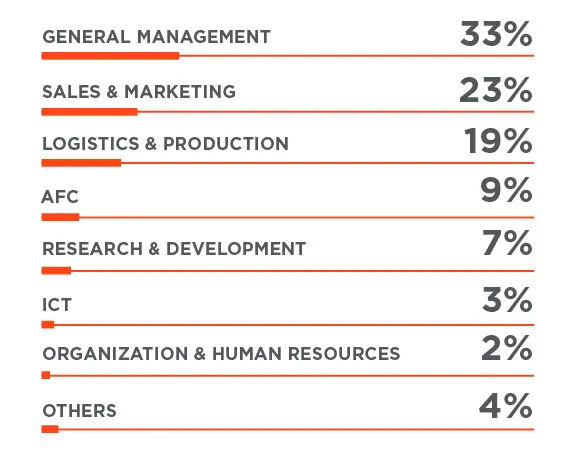
Professional sector
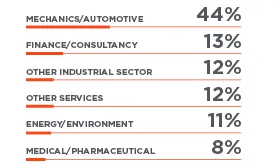
-
44
AVERAGE AGE
-
18 years
PROFESSIONAL EXPERIENCE
Alumni

Andrea Grillenzoni
General Manager Garc
EMBA (Ed. 2020/22)
"The EMBA provides a foundation on which to build the various skills required in modern organisations. The ability to acquire different languages makes it possible to multiply the opportunities for confrontation in the company. The person grows and the organisation grows. A decisive element is the group of professionals with whom you share this journey. At the end of the journey you not only find yourself full of new knowledge but also strengthened by a family of professionals with whom you have shared a unique experience. Another valuable element is the relationship with the lecturers, built on a professional level but free in its comparison. The "flexible" formula between online and face-to-face training also allows the commitment to be managed efficiently."

Stefania Barzanti
Marketing Manager, Business Development Foods&Chemicals, IMA Active Division
EMBA (Ed. 2020/22)
"During my long professional career with the IMA Group, I have been involved in a number of projects, which have given me an insight into the company as a whole. I had been thinking about an Executive MBA for some time: I wanted to put the skills I had acquired on the job to the test and place them in a theoretical frame of reference. But, above all, I wanted to get to know other worlds, other sectors, other best practices, other ways of creating value and doing business."

Jan Kubran
Director Brand Partnerships & Music Licensing, Sony Music Entertainment Germany
EMBA (Ed. 2020/22)
"With a background in Communication Sciences and working in Marketing & Sales for the entertainment industry for 15 years, I set myself the goal of extending my business skills so I could grow as a leader. I chose the EMBA at Bologna Business School based on its perfect educational offer and its location in Emilia-Romagna, one of the most attractive regions in the world. Although it took place in an unprecedented timeframe (between 2020 and 2022), the programme was enlightening and highly stimulating: it allowed me not only to achieve my goals, but also to diversify my perspectives. On top of that, my network has been enriched by extremely capable and constantly inspiring professionals, professors, colleagues and entrepreneurs, from different sectors, who have shaped this intense intellectual journey."

Elena Zeni
Senior Portfolio Strategy Lead, Global Marketing, Chiesi Group
EMBA (Ed. 2020/22)
"The EMBA course provides a foundation on which to build the various skills required in modern organisations. The ability to acquire different languages makes it possible to multiply the opportunities for confrontation in the company. The person grows and the organisation grows. A decisive element is the group of professionals with whom you share this journey. At the end of the journey you not only find yourself full of new knowledge but also strengthened by a family of professionals with whom you have shared a unique experience. Another valuable element is the relationship with the lecturers, built on a professional level but free in its comparison. The "flexible" formula between online and face-to-face training also allows the commitment to be managed efficiently."

Chiara Sonaglioni
HR Director, Gruppo De Bona
EMBA (Ed. 2018/20)
"Attending the EMBA Master was a fundamental choice at an important turning point in my career: from being a staff member to holding a business post. The Master granted me a wide-ranging perspective across the business world, also allowing me to access industries different from mine. This cross-cutting approach and the ability to include theory, business strategy and practical implementation in the field are, for me, the differentiating elements that make the EMBA stand out. It’s a demanding course, one which requires resolution and the will to go back to study but, in exchange, it gives you the chance to broaden your skills and make them competitive."

Monica Castoldi
Sales & Marketing Director, Cebi Italy
EMBA (Ed. 2018/20)
"The Executive MBA is a challenging and stimulating course that revitalized me and provided me with the tools to meet the targets that had been set out, with competence and competitiveness. The exchange of ideas and experiences within the BBS community is of great value and effectiveness."
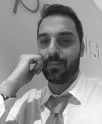
Marco Gelardi
HR Director EMEA. Global HRBP Operations, Datalogic
EMBA (Ed. 2018/20)
"The choice to start attending such a demanding course as an Executive EMBA was pondered upon with my family as well, because besides ourselves, it requires a sacrifice from them too. Once I started, I realized I had made the best possible choice for my career, for an HR professional having the chance to delve deeper into all business topics, from finance to marketing, from operations to communication, is a unique opportunity. At the end of the master you become a proper business partner, efficient and well-prepared to support business leaders in the global market challenges. On top of this, you are part of a class of exceptional people, with experiences, preparation and skills that complete each other. A team-spirit emerges, something that is often disregarded at work."

Andrea Galardi
CEO, so.ges.
EMBA (Ed. 2018/20)
"All that I knew I had learned over 20 years of personal growth in the field. For some time, I’d started to feel I strongly needed to exchange views and ideas and understand if what I was doing was the right thing, besides seeing and discovering new things. A curious person by nature, I always thought you never stop learning, therefore I chose the EMBA. The outcome? It was a confirmation of all my ideas but mostly I was able to acquire new skills I was missing and that I now hope I’ll be able to use at best: it opened my eyes on many aspects. In addition, I hadn’t considered the plus that networking would determine: so many different travel companions endowed with such professionalism and passion that every weekend you’d breathe a positive air that would always, inevitably leave you something."

Filippo Di Gregorio
General Director, Unindustria Reggio Emilia
EMBA (Ed. 2018/20)
"For almost fifteen years I worked with passion in the HR field. Over time, there was the need for me to hold a less specific post and recently I was presented with the opportunity to have more responsibility in the management of complex organizations. Thus, it was natural to enroll at the EMBA, with the aim of developing the necessary skills. I haven't simply encountered a high level business school, a well prepared faculty featuring instructors willing to help, but a real community of people who never fail to support you."

Alessandro Berzolla
Chief Operations Officer, Industria Italiana Autobus
EMBA (Ed. 2018/20)
"I had to face human and managerial challenges in my professional journey, with various multinationals, abroad and in Italy and it gave me the opportunity to enhance my competences, then I felt the need to review my experience in a new perspective. Choosing the Executive MBA in Bologna I decided to challenge my view on things, questioning my technical knowledge and training my managerial approach for a competitive environment, where increasingly the focus on the individual and their preparation for a wide-ranging vision will be fundamental for success."

Lorenza Zanardi
General Manager, Rajapack
EMBA (Ed. 2017/19)
"I decided to have this highly educational experience to improve my skills, widen my network, find food for thought and new vantage points in relation to the way I'd organized my job until then. As a woman and mother, it's not easy to reconcile family life and career. The decision to attend the EMBA was a very demanding choice, both personally and professionally, but I was greatly rewarded and satisfied by the outcome."

Lorenzo Marchionni
Chairman of the board, Centrale del Latte della Toscana
EMBA (Ed. 2017/19)
"Choosing the EMBA was a fifty-fifty decision, featuring heart and brain. It's a demanding, though strategic, journey to enhance one's own work and educational background and, at the same time, to be ready for new experiences and challenges. It was a gut choice, inspired by the desire to go back to 'school' and meet colleagues from different environments and a high profile faculty. I wasn't mistaken in terms of the commitment required and the tools and relationships it provides."

Angela Balducci
Head of Pharmaceutical Business Unit, Lavoropiù
EMBA (Ed. 2017/19)
"I chose the EMBA because I'm convinced that increasingly people make the difference. Being innovative, flexible, complete managers, having a concrete vision, allows us to imagine the future through the continuous changes, both of the market and of our roles within the companies. Experiences, that's really the plus that characterizes us, but expertise, in terms of management, creativity and the sense of responsibility is the winning approach in today's business. And thanks to the EMBA, I was able to add to my toolkit the instruments to remain competitive in an ever-changing market."

Emanuele Costa
Direttore Data Science Institute American University of Central Asia (AUCA)
EMBA (Ed. 2017/19)
"After having held management positions both in Finance and in Digital Transformation, registering for the EMBA was a natural choice to be able to investigate areas of management that are not familiar to me so as to obtain a holistic vision of the company. Moreover, the EMBA also represented an opportunity to analyze and reflect on many of the decisions taken in the past and verify their validity together with the potential alternative routes."

Giuseppe De Martino
Design Quality Assurance Manager, Ferrettigroup
EMBA (Ed. 2016/18)
"Today, a good manager needs additional skills that allow him to expand his global business vision, appropriately evaluating strategic choices in a world where the rules of competition and business management are increasingly challenging. In the Bologna Business School EMBA I found not only the necessary tools but the possibility of becoming part of a reality made up of professionals and friends, an inexhaustible source of inspiration and mutual comparison."
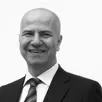
Franco Valentini
General Manager, Elettronica Santerno
EMBA (Ed. 2016/18)
"In the last 10 years the photovoltaic market, in which I 'm active, has experienced yearly drastic changes. I learned a lot, especially from the many mistakes I made. I know that in order to face change, it is necessary to be able to stop, think, re-read the path with experts. At the EMBA I found new skills on the basics of corporate management in the context of the ongoing technological revolution, an outstanding faculty, top-managers of prestigious multinational companies and a classroom of professionals with whom I struck up a strong and lifelong friendship."

Matteo Nardini
Corporate Finance, Kedrion Biopharma
EMBA (Ed. 2016/18)
"Specializing in administration, finance and control and loving challenges, I decided to put myself to the test with the Executive MBA of Bologna Business School to exchange ideas with people having greater professional experience and to gain a comprehensive overview of how a company works. This experience has strengthened my relational skills as well as my knowledge on distinctive factors that are drastically changing my way of doing business."

Alberto Barattini
Consul, Italian Consulate Egypt
EMBA (Ed. 2016/18)
"I decided to enroll at the Master fully aware that it would have been a demanding commitment, but facing this challenge with the certainty that it would enhance the value of my experiences. I concluded it with the awareness I acquired strengths and overcame weaknesses. Plus a set of human relationships of priceless value"

Angelo Gazzoni
Country Manager, Hexagon Safety & Infrastructure
EMBA (Ed. 2015/17)
"I chose the Executive MBA at BBS to complete my professional profile and to consolidate the experiences and skills I gained in various multinational companies. At the end of this journey, I can say that I enhanced my managerial awareness, which is a key to understand the main drivers determining the performances of a business, using the tools acquired at the courses and the interaction with the faculty, the other participants and guest lecturers, who enriched this experience."

Rita Melcarne
HR Manager, Ducati Motor Holding
EMBA (Ed. 2015/17)
"From a professional point of view specialization has its impact but the leadership is just as important. To find your own way you have to be determined to get to the end. And we must be willing to confront, flexible to change. In the Emba the comparison takes place in a fruitful, continuous, intense way, both with the classmates and with the teachers."

Deborah Buttignol
Principal, Badenoch&Clark
EMBA (Ed. 2014/16)
"I came to the decision to enroll at this Master during a phase of radical personal and professional change. It was an experience that required commitment and generated energy. The path I followed helped me becoming aware of my strengths and weaknesses and to have a holistic vision of the business."

Nicola Frignani
Project Leader, Di.Tech
EMBA (Ed. 2014/16)
"Companies increasingly require entrepreneurship from their human capital in order to better face and manage market changes. The EMBA develops this capability, ensuring continuous personal challenges."

Giulia Cristofori
Marketing & Business Development Director, Simex
EMBA (Ed. 2014/16)
"Every day we must take decisions. Nowadays, challenges are in a global, complex and interconnected market. We have to be very flexible, far-sighted and very reactive and, in order to be effective, we inevitably must be very well prepared."

Matteo Campanati
Marketing & Sales Manager, Endura
EMBA (Ed. 2014/16)
"I decided to participate in the Executive MBA because we need to be prepared to seize tomorrow's professional opportunities. The program of the Bologna Business School is comprehensive and the faculty highly professional. I received my degree from the University of Bologna and I was certain about the educational quality."

Federica Fistarollo
Legal & Compliance, SATEC
EMBA (Ed. 2013/15)
"Thanks to the EMBA I’m working to establish a firm. The Master's helped me to interact with different professional figures and to shape my own overall vision of how a business works."

Fabio Benincampi
Logistics Director, Ducati Motor Holding
EMBA (Ed. 2013/15)
"I chose the EMBA to enrich my cultural background with new skills, the ones that today are increasingly essential for companies. This Master could be the key to remaining competitive in today’s fast-paced and ever changing environment."
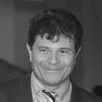
Roberto Donato
PLC Owner, Tetra Pak
EMBA (Ed. 2012/14)
"A couple of years ago I decided to explore the theme of business management and with the EMBA my expectations were fulfilled. I gained skills and tools which allowed me to expand my technical background and acquire ‘vision’ to compete effectively. What’s more I had the privilege to go head to head with stimulating minds and create meaningful relationships with people of value, both from a professional, as well as human, point of view."

Elena Zaccanti
Presidente, Zaccanti
EMBA (Ed. 2010/12)
"Born and raised in the family business, when I became President I felt an urgency to acquire new and sophisticated tools that would allow me to better address the challenges and responsibilities my role entails. Halfway through my experience, I can say that my commitment has been paid in full."
Giacomo Gollinucci
CEO, Gollinucci
EMBA (Ed. 2009/11)
"The EMBA has given me with new insights, new methods of problem-solving, and new approaches to analyze opportunities I'm implementing, with quite interesting results."

Andrea Falleni
CEO, Capgemini
EMBA (Ed. 2009/11)
"Compelling and challenging: this is the EMBA of Bologna Business School. My decision to tackle this experience was content-based, on top of a technical assessment. But what I found is much more: new stimuli and wonderful friends, and I also learned to look at things in a different way."

Paolo Longobardi
Senior Partner, Praxi
EMBA (Ed. 2003/05)
"It is stimulating to sit in a classroom full of extremely demanding people with themselves. It forces you to consider your limits, to jump higher, to run faster: you must learn to give your best."
Networking
The EMBA is a Master made up of people, it is a place to create formal and informal opportunities to discuss and exchange ideas and experiences among participants. Networking happens naturally between students in a class, between participants and teachers, and among students from other courses or previous editions of the same Master. This in turn generates a network of relationships that are critical to your business which begins to grow during the Master and continues well after the end of the journey.
COMPANIES
Many companies choose EMBA as a tool for the optimization of their key resources.
In recent editions the following companies have been partners of the EMBA at Bologna Business School:
ABB ENERGY AUTOMATIC ABBOTT AEROPORTO G. MARCONI AGIP ALLIANZ A.MANZONI & C. APRILIA AUTOMOBILI LAMBORGHINI AUTOSTRADE BARILLA BASF BEGHELLI BENETTON BOLOGNA FIERE BONFIGLIOLI RIDUTTORI BOSCH BOSCOLO HOTELS BREVINI POWER TRANSMISSION CABLE&WIRELESS CAMST CATTOLICA ASSICURAZIONI CHIESI FARMACEUTICI CHLORIDE CNH ITALIA COMER INDUSTRIES CONAD CONFINDUSTRIA EMILIA-ROMAGNA CRIF DANIELI DATALOGIC DELOITTE DUCATI MOTOR HOLDING ELCAM MEDICAL ITALY ELECTROLUX ELI LILLY EMERSON ENEL ERIDANIA FATER FE.A.SA FERRARI FERRETTI GROUP FREESCALE SEMICONDUCTOR FURLA G.D – GRUPPO COESIA GENERAL ELECTRIC GLEM GAS GRANAROLO GRUPPO CERAMICHE RICCHETTI GRUPPO MACCAFERRI GUCCI HERA H3G ICONSULTING IMA IMAB GROUP INDESIT INPS IREN IRIS CERAMICHE ITALCAB GRUPPO FS KALE ITALIA KPMG LAVAZZA LIMONI LOMBARDINI MARAZZI MASERATI MDM GROUP MERIDIANA MONTENEGRO MOTORI MINARELLI NIKE NOKIA SIEMENS NETWORK ORACLE ITALIA PANARIA GROUP PEDINI PIAGGIO POSTE ITALIANE PRAXI OPOCRIN ORACLE ITALIA ORIENTA PARTNERS ROSETTI MARINO SACMI SCM SEAT PAGINE GIALLE SISAL SORIN BIOMEDICA STMICROELECTRONICS TECHNOGYM TETRA PAK TEUCO UNICREDIT BANCA UNIPOL GRUPPO FINANZIARIO UNITED AIRLINES YOOX VIVISOL VOLVO AUTO ITALIA
Programme Advisory Committee
- Cosimo Capuzzello – CEO, Datasensing
- Patrizia Cianetti – Marketing and Communication Director, Ducati Motor Holding
- Ciavola Michele – Group Chief HR Officer, Eldor Corporation
- Ugo Di Francesco – Group CEO, Kedrion Biopharma
- Filippo Di Gregorio – Chief Operation Officer, Flash Battery Srl
- Andrea Falleni – CEO, Southern Central Europe and Group Executive Board member, Capgemini Group
- Paolo Poma – CFO & Managing Director, Automobili Lamborghini
- Alessio Rossi – EVP, Shiseido Brand Holder Extension & Shiseido
- Gian Luca Antinori – Model Chief Engineer, Maserati SpA
- Aldo Fontana – Global Product Manager, Tetrapak
- Jan Kubran – Head of Brand Partnerships & Music Licensing, Sony Music Germany
- Marina Ballestrazzi – Customer Team Manager, Bolton Food
- Pietro Conte – Responsabile Area Lavoro, Confindustria Ceramica
- Yuri Beghi – CEO, Atlas Concorde USA
- Fabrizio Gamberini – Global Chief Brand Officer & President, Vibram Corporation
- Piergiorgio Grossi – Chief Innovation Officer, Credem Banca
- Andrea Mantellini – CEO & Managing Director, Penske Automotive Italy
Community
Once the Master is completed, it is possible to participate in the Community’s efforts to further expand the network. The Executive Alumni Initiative (EAI) offers all professionals, managers and entrepreneurs who have completed an Executive Master at the Bologna Business School the opportunity to stay up to date on critical themes of corporate governance, to continue to expand professional networks, and to collect contributions and ideas from major players in the world of economy and culture. The EAI is divided into a series of activities, from a one day seminar to the experimental course, from social and sport events to services offered on the web platform. All of this is conceived and designed by a group of alumni eager to bring vitality to an initiative that involves the Alma Alumni BBS community year after year. In addition, there will be regular meetings (speed dates) with head hunters, managers and entrepreneurs interested in meeting the Alumni of the School to discuss and obtain information relevant to their professional development path/career.
International Week
In 2011, the school created “the EMBA Consortium for Global Business Innovation” along with the international business schools Coppead of Rio de Janeiro, Chapman of Miami, and Mirbis of Moscow to create a course in business innovation across countries.
The Consortium is expanding steadily and the business schools that currently participate are:
Bologna Business School, Bologna – Chapman Graduate School of Business, Miami – Coppead Graduate School of Business, Rio de Janeiro – University of Stellenbosch Business School, Cape Town – Cranfield School of Management, Cranfield – Lucas Graduate School of Business, San José – ESAN Business School, Lima, Perù – Keio Business School, Yokohama, Japan – Kosminski University, Poland – Munich Business School, Germany.
Alma Business School EMBA participants take part in each session in a one week full-time course reserved for the executives of the partner schools, in one of the consortium countries. The program focuses on issues in global business innovation, explored in different geographical locations and in different industries or sectors, in which each business school specializes. Each participant may choose, subject to the availability of each school, his or her preferred destination.
It is an opportunity for those who want to explore both mature and emerging markets and evaluate opportunities for improvement to create value for their business. Participants have the opportunity to become part of a community of executives at the international level, establishing valuable relationships for the development of their business.
SCHOOLS IN THE EMBA CONSORTIUM
Chapman Graduate School of Business Florida International University – United States of America Coppead Graduate School of Business Universidade Federal do Rio de Janeiro – Brazil Cranfield School of Management Cranfield University – United Kingdom School of Economics and Business Administration – SJSU Lucas Graduate School of Business – United States of America USB University of Stellenbosch Business School – South Africa ESAN Business School – Perù Keio Business School – Japan Kozminski University – Poland Munich Business School – Germany
FEES
The registration fee for the Master’s course on a company basis is 37,300 Euros + VAT.
The registration fee for the Master’s course on an individual basis is 28,600 Euros + VAT.
Reduced fee available.
For further information, please contact emba@bbs.unibo.it.
- Access to the Moodle platform and teaching materials
- Participation to the BBS Community events
- Wi-Fi
- Access to the AIDA database for companies
Funding
Long-term and low-interest loan:
– Repayable in 10 years
– Reduced interest rate
– Possibility to postpone the 1st payment fee to 36 months
For more information please mail to emba@bbs.unibo.it
REQUIREMENTS
The master is designed for professionals or senior managers, who have at least 10 years of experience and hold a degree.
A quota of applicants who do not hold a degree and with a minimum 12+ years of professional experience can be admitted, up to 10%.
APPLICATION PROCESS
The admission process consist of:
- Entry Test: 30 minutes online
- Assessment Interview: 30 minutes online or on site
To gain access to the selections for the Master, write to Valentina Muzzi (emba@bbs.unibo.it)
FAQs
The selection process consists of an interview with the Master’s Director, organised by the Program Manager upon candidate request and after sending of the Curriculum Vitae. The interview is not binding on enrollment.
The Program Manager can send a certificate of attendance record at the end of the didactic sessions to those that make a request, upon verification of the attendance.
In order to get admitted to the Master Executive, it is required to have a Bachelor’s Degree, however, a limited number of places are available for those who do not have a Bachelor’s Degree but that can demonstrate to have significant professional experience, to be evaluated during the assessment interview.
No, it is not. The Executive Masters are not University Masters, therefore they do not have ECTS credits (European Credit Transfer and Accumulation System), that in Italy are called “crediti formativi universitari (CFU).
At the end of the Master, a certificate of attendance (which includes the achieved results) and a Diploma of Participation (upon verification of successful completion of each course and of at least a 70% of class attendance) are issued.
No, because it is not a university Master.






